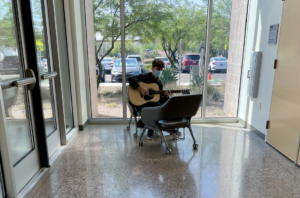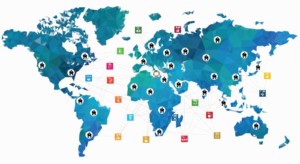Private Enterprise in Public Education

American Enterprise Institute is hosting a discussion about the role of Private Enterprise in Public Education. Two years ago I wrote Private Capital in Public Education for AEI. Here’s a quick update on what will happen to the roughly $25b textbook, testing, tutoring, & tech market.
1. Despite market pressures, this market segment will grow by at least 50% by 2020 despite market cost pressure as part of a long shift of tech for labor and implementation of more differentiated and distributed staffing models in tech-enabled schools.
2. The $8-9b instruction materials segment will decline with shift to digital and OER substitution. Within this category, digital textbooks will grow and then begin falling by 2015 or 2016 as they are replaced by adaptive sequences and personalized apps.
3. Biggest growth category will be in platform related services: assessment, implementation assistance, PD, tutoring.
4. Cost per unit of access device will continue to plummet but we’ll push pass the 1:1 mark by 2015 as schools build high access environments (making it more important for both content and assmt to be cross-platform).
5. Sector growth will be offset by small decrease in school & district staffing patterns (big cuts in 2011-13 not replaced) with more differentiated and distributed staffing models
In sum, compression in materials and tech, expansion in personal digital learning services. As Ray Kurzweil would say, my assumption is that future is not like the past. Here’s five reasons:
1. Online learning is massively scalable
2. Network effects of freemium adoptions (bottom up and top down)
3. Intense fiscal pressure
4. Intense cost pressure: cheap tablets, OER, etc
5. A few states will adopt the DLN platform
My big concern is that fiscal pressure and weak accountability is putting a lot of downward pressure on price with no countervailing pressure on quality. There’s lots crappy first gen digital learning and weak incentives to produce next gen platforms and engaging adaptive content. That’s why I outlined 10 strategies to boost the quality of online learning.








0 Comments
Leave a Comment
Your email address will not be published. All fields are required.